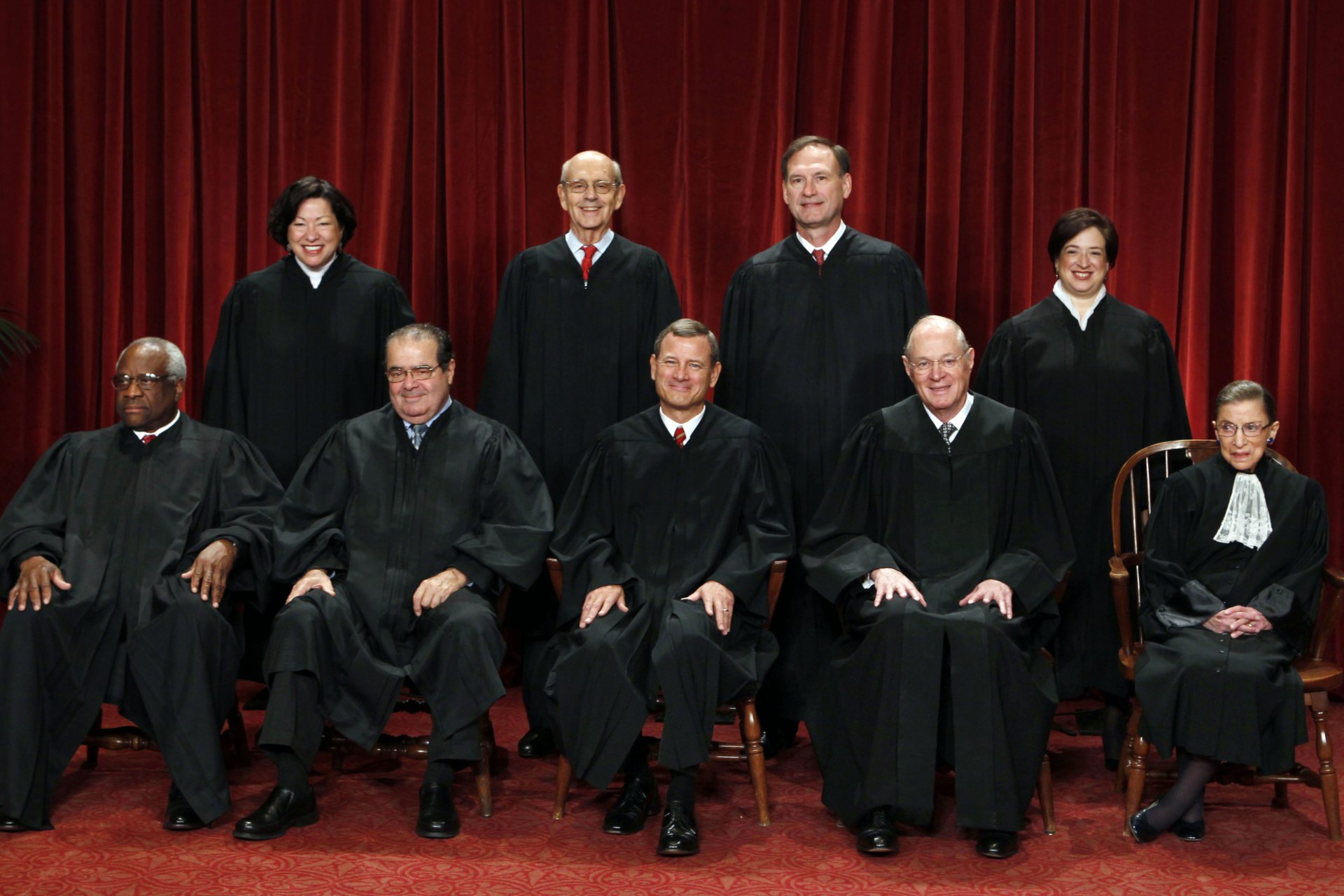Is Operation Odyssey Dawn Constitutional? Part V

By experts and staff
- Published
Experts
![]() By James M. LindsayMary and David Boies Distinguished Senior Fellow in U.S. Foreign Policy
By James M. LindsayMary and David Boies Distinguished Senior Fellow in U.S. Foreign Policy
Most Americans think of the Supreme Court as the legal equivalent of a baseball umpire. In their view, the Court’s job is to call legal balls and strikes, and thereby tell us what the law is. So why then is the question of whether presidents can initiate military hostilities so hotly debated?
It turns out that the Supreme Court does not see its job as most Americans do, enforcing the dividing line between the executive and legislative branches. The Court sometimes sidesteps separation-of-powers issues, especially when it comes to foreign policy. The Court has good reason to bite its tongue. However, when it comes to the war power, its silence alters the basic constitutional structure that the Framers created.
The Supreme Court hasn’t always shied away from refereeing separation-of-powers questions on foreign policy. In Little v. Barreme (1804), for example, the Court protected Congress’s war power from executive encroachment. The case arose when a U.S. naval ship seized a vessel sailing from a French port during the Quasi-War of 1798 with France. The problem was that Congress had specifically directed the U.S. Navy to seize ships heading to French ports. The captain of the U.S. ship defended his actions on the grounds that the secretary of the Navy had ordered him to seize ships regardless of whether they were bound to or from French ports. The Supreme Court rejected the captain’s defense. It ruled that the executive branch could not change Congress’s instructions, even if doing so would have been a more effective way of achieving the military goals Congress sought. Noticeably absent in the Court’s decision was any reference to the powers the president might have as the nation’s commander in chief.
The modern Supreme Court, however, generally shies away from wading into war powers cases. The Court offers several reasons for its reluctance. One reason is the courts’ preference to hear only lawsuits brought by someone who has legal standing, which is defined as having suffered concrete personal harm. Traditionally, the courts have held that neither Congress nor the president suffers concrete personal injury when the other branch tries to usurp its authority. So it is generally (though not always) the case, as the late great legal scholar Louis Henkin put it, that “the president himself cannot bring a judicial proceeding to challenge alleged usurpation of his authority by Congress, nor can Congress (or members of Congress) sue to enjoin an alleged usurpation by the president.” For example, when twenty-six members of the House of Representatives sued Bill Clinton in 1999 for ordering the bombing of Serbia without congressional authorization, the lower federal courts dismissed the lawsuit on the grounds that the legislators did not have legal standing. The Supreme Court refused to hear the appeal.
A second reason the courts may sidestep separation-of-powers questions is the principle of ripeness. Courts are not debating societies for thrashing out hypothetical issues. They are places for assessing allegations of real or imminent harm. So courts generally take only cases that meet these criteria. For example, 110 members of Congress sued President George H.W. Bush in the fall of 1990, arguing that he could not use U.S. troops to liberate Kuwait unless he first had congressional authorization. The judge in Dellums v. Bush granted the members standing, but then dismissed the case because it was not ripe for judicial review. He argued that the case would be ripe only if “the plaintiffs in an action of this kind be or represent the majority of the members of Congress.” In short, if Congress did not formally stop Bush from acting, the courts would not bail it out.
The third reason the courts might pass on a separation of powers issue is the doctrine of political questions. The idea here is that it is the courts’ job to rule on the legality of what the government has done and not on the wisdom of its decision. The Supreme Court takes a broad view of what constitutes a political question in foreign affairs. For instance, in 1979 President Jimmy Carter unilaterally terminated the Mutual Defense Treaty with Taiwan. Sen. Barry Goldwater (R-Ariz.) and more than a dozen of his colleagues filed suit alleging that Carter had exceeded his constitutional authority. To all of us who did not go to law school, Goldwater v. Carter seems to have raised a straightforward legal question: which branch of government has the authority to terminate a treaty? But four Supreme Court justices argued that the question was “’political’ and therefore nonjusticiable because it involves the authority of the President in the conduct of our country’s foreign relations and the extent to which the Senate or the Congress is authorized to negate the action of the President.” (A fifth justice argued that the case was not ripe for trial because the Senate had taken no formal steps to stop Carter.)
Why have the courts in recent decades shied away from policing the boundaries of the separation of powers? Two practical motives stand out. One is that the courts want to limit their workload. If anyone could sue, regardless of whether he or she had been personally harmed, the courts would be swamped. The same would be true if the courts agreed to hear cases about legal “what-ifs” or if they took on the task of passing judgment on the wisdom rather than the legality of what the government does.
The second practical reason for the rules on justiciability is specific to the separation-of-powers issue. If lawmakers know they can toss tough problems into the courts’ lap, that’s precisely what they will do. Why cast a politically tough vote if you can dump the matter on justices who don’t have to face the voters? This would undermine the democratic idea that the two political branches—Congress and the president—should decide the country’s future course.
The effect of the Court’s reticence in recent years, however, is to turn the constitutional structure the Framers created on its head. At least it does if you agree with Alexander Hamilton that “the Legislature have a right to make war” and that “it is…the duty of the Executive to preserve Peace till war is declared.” How so? The Framers put the burden of effort in going to war on presidents. Presidents could not act until they had persuaded Congress to agree. That meant assembling winning coalitions in both the House and Senate. As I noted in an earlier post, some nineteenth century presidents tried and failed to secure congressional approval for hostilities they hoped to initiate.
By contrast, if presidents are free to act unless Congress stops them—as the judge suggested in Dellums v. Bush—then the burden of effort shifts to the other end of Pennsylvania Avenue. Congress can stop the president only by passing a law that commands him to do so. But that law is subject to a presidential veto. As long as a president can get thirty-four senators to back him, and almost every president can, he carries the day even if the other 501 members of Congress are opposed.
Facing those daunting odds, most members of Congress don’t see the point in challenging the White House. Why waste valuable legislative energy tilting at windmills? Moreover, political incentives reinforce the urge that lawmakers have to head to the sidelines. After all, laying oneself open to charges of refusing to support U.S. troops in the field is hardly a recipe for electoral success.
So the war power gravitates to the White House, in practice if not in law.
Other posts in this series:
